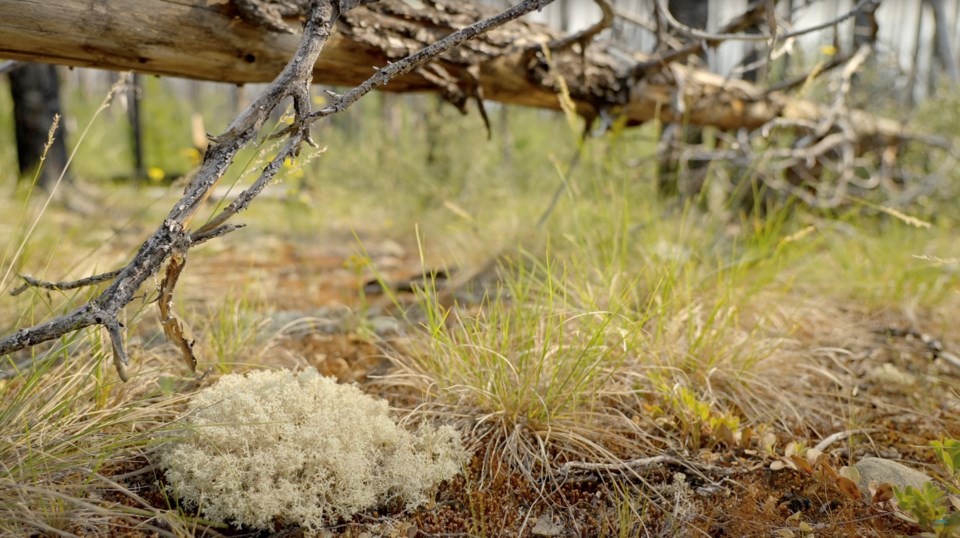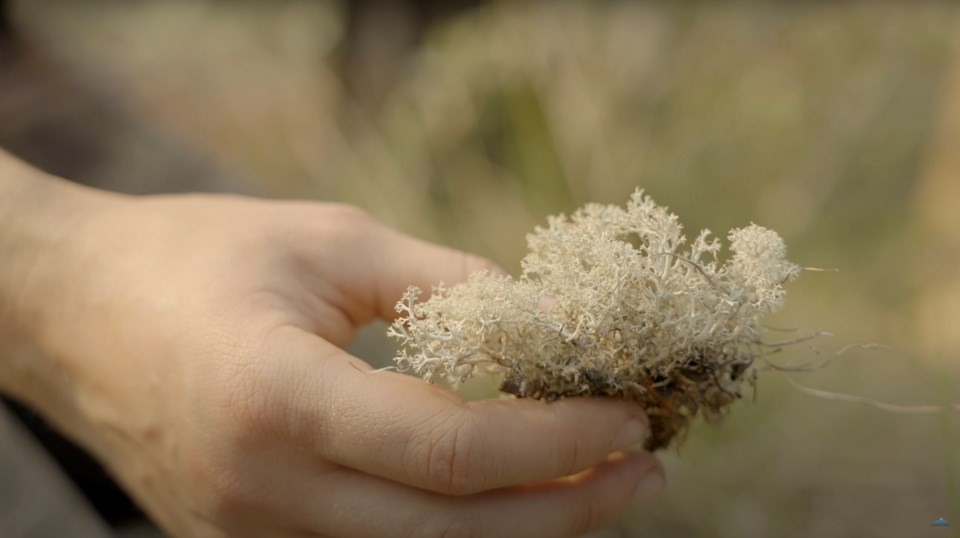An innovative project, funded by the Fish & Wildlife Compensation Program (FWCP) and led by Tsay Keh Dene Nation, Chu Cho Environmental, and the Province of B.C., is finding out if transplanting lichen could speed-up restoration of this important food source for at-risk caribou.
In 2015 and 2016, lichens were transplanted to areas used by the Chase caribou herd, near Mackenzie, that were burned by wildfires in 2014. Samples of this transplanted lichen were recently taken to a laboratory where a team of researchers, including biologists from the project leads and UNBC, studied it to find out if the experiment to fast-track lichen establishment is working.
Critical habitat for caribou herds has been impacted in many ways. The creation of Williston Reservoir has divided herds, and forest harvesting, mineral exploration, and other human development has increased pressure on caribou. More recently, the mountain pine infestation and several large wildfires have reduced the availability of important winter lichen forage. Lichen for the at-risk Chase caribou herd has been hit hard by forest fires over the last decade. It’s a serious situation because slow-growing lichen can take up to 60 years to get re-established. That’s a long time for such a critical food.

The project to transplant lichen is seeking to shorten this time frame, and the results to-date are very positive! The transplanted lichen survived, and what’s more, they showed very few or no signs of stress. Early signs point to this new approach becoming a tool in caribou winter habitat restoration. More monitoring is recommended 10 years after transplanting the lichen—to make sure they are still thriving.
Caribou are a priority species for the FWCP in our Peace Region, and over the years we’ve funded many projects to support this important caribou herd. Implementing a broad-scale plan to restore winter caribou habitat is a long-term priority for the FWCP, which is a partnership between BC Hydro, the Province of B.C., Fisheries and Oceans Canada, First Nations, and public stakeholders. Food sources are a critical part of functional habitat, making this project an important piece of our caribou recovery effort.
The FWCP funds projects that conserve and enhance fish and wildlife in watersheds impacted by BC Hydro dams. We take a forward-looking approach to addressing dam impacts, recognizing that an ever-changing natural environment means we must stay on our toes and think outside the box. This project is an example of how innovation, collaboration, and a little patience can grow into promising results when it comes to conservation.

Jen Walker-Larsen is the Acting Manager for the Fish & Wildlife Compensation Program in the Peace Region.



